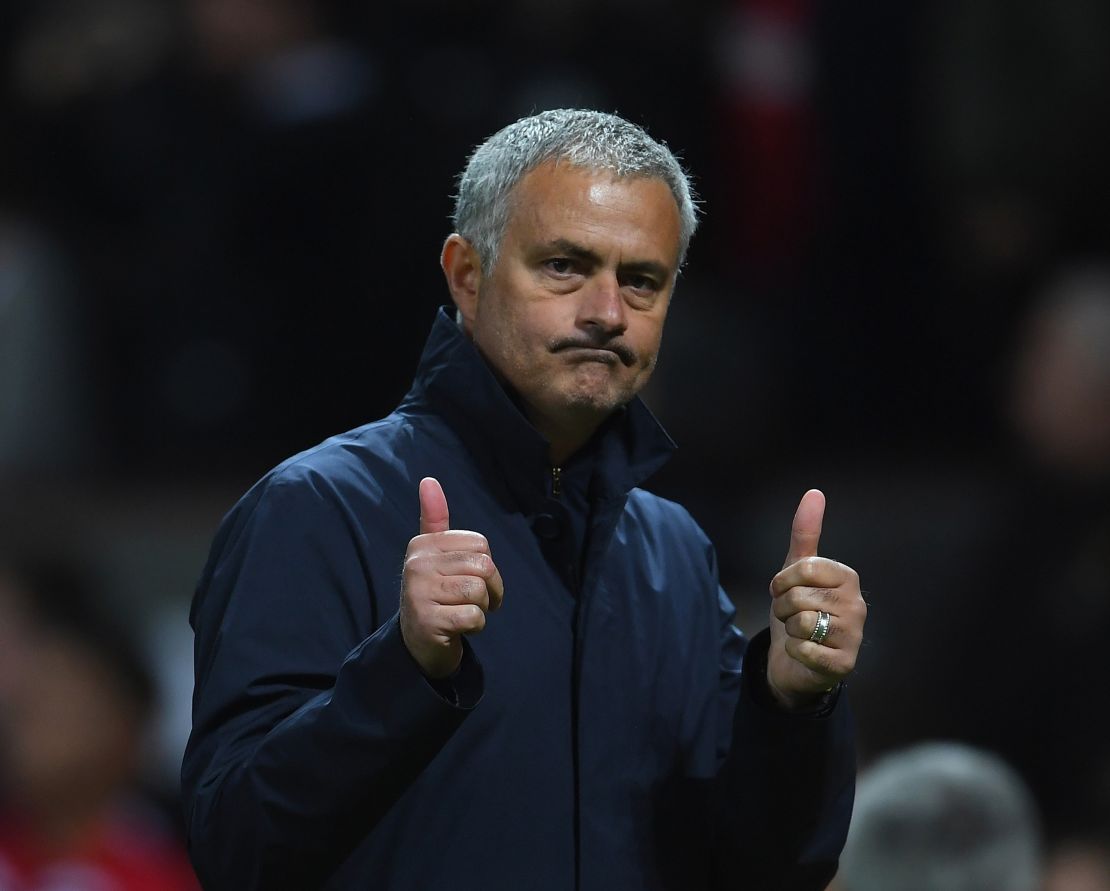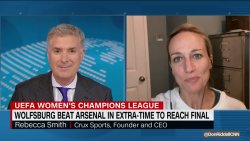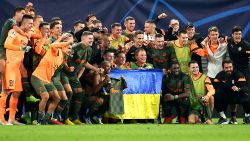Story highlights
Jose Mourinho backs expansion of World Cup
"Incredible social event," says Mourinho
Human rights violation claim against FIFA rejected
FIFA’s mission to expand the World Cup has a major ally in the shape of “The Special One” – Jose Mourinho.
Currently manager of English Premier League giants Manchester United, Mourinho has backed FIFA President Gianni Infantino’s plan to increase the size of the tournament from 32 to 48 teams.
The head of world soccer’s governing body made the idea a key plank of his manifesto prior to his election in February 2016 and is adamant the game must be more inclusive.
And now he has receiving the backing of Mourinho, a man who has won league titles in Portugal, England, Spain and Italy, and is a two-time winner of the European Champions League.
“I’m totally in favor,” Mourinho told FIFA’s website. “As a club manager, if the expansion meant more games, less holidays and less pre-season for players, I would say no.
“But it’s important for critics to analyze and understand that expansion doesn’t mean more matches. Players are protected and clubs are protected in this way.”
READ: Which Premier League signing is proving the best value for money?
READ: Giroud dubbed ‘Scorpion King’ after wonder goal
READ: Guardiola: “I will not be a trainer at 60 or 65”
READ: Spurs end Chelsea winning streak

FIFA’s proposals for expansion
Currently, 32 teams are divided into eight groups of four, with the top two from each going through to the last 16 knockout stages.
FIFA’s preferred method of expansion would see 48 teams compete in 16 groups of three, the top two progressing to the last 32, when the competition reverts to a straight knockout.
The proposal will be discussed and voted on at the next meeting of FIFA’s Council on January 9.
“I prefer groups of three. Two matches and then through to the knockout stages or go home,” Mourinho explained.
“This way, the two group matches are crucial, then the knockout stage is next which brings even more emotion. Teams with less potential and experience will probably play two matches and go home.
“But they would do so having improved and gained experience on the pitch, which would be added to the economic rewards of appearing at the finals – including further investment in their footballing infrastructure.”
While Mourinho is an advocate of an expanded World Cup, the likes of Germany coach Joachim Low, Manchester City boss Pep Guardiola and the organization that speaks for Europe’s biggest football clubs have all criticized FIFA’s proposal.
READ: Europe’s top clubs oppose FIFA’s World Cup plan
‘Expansion would mean an incredible social event’
There are a few other options on the table – Infantino’s original proposal of a playoff round to eliminate 16 teams before the group stages, and a 40-team World Cup with either 10 groups of four or eight groups of five will be considered. The fourth option is to keep the World Cup as it is.
But Mourinho thinks the bigger the better – and that an enlarged World Cup will be of benefit to soccer in smaller countries and help grow the game.
“The expansion means that the World Cup will be even more of an incredible social event. More countries, more investment in different countries in infrastructure, in youth football,” Mourinho added.
“More nations taking part means more passion, more happiness, more enthusiasm. More countries means more Africans, Asians, Americans together.
“Football is developed in the clubs, so we can’t expect football to explode in terms of quality at a World Cup. The World Cup is a social event and football can’t relinquish this opportunity to further reflect fans’ passion.”
Human rights claim against FIFA rejected
Meanwhile, a Swiss court has rejected claims that FIFA has been jointly responsible for human rights violations regarding migrant workers who are assisting on projects ahead of the 2022 World Cup in Qatar.
READ: Qatar 2022: New labor laws ‘fail to prevent exploitation’
Paperwork was filed by the Netherlands Trade Union Confederation (FNV) on behalf of a Bangladeshi migrant worker, Nadim Sharaful Alam, but it has been dismissed by the Commercial Court of Zurich.
The Dutch trade union FNV, the Bangladeshi Free Trade Union Congress and the Bangladesh Building and Wood Workers Federation all supported the action calling for the rights of migrant workers to be safeguarded and for the “adequate and effective labor reforms in Qatar, that are actually implemented.”
It also called for an abolition of the ‘Kafala’ system, a practice common in the Middle East where migrant workers rely on their employers for visa sponsorships and maintaining legal status.
In December, a new Kafala law came into effect, designed to loosen regulations surrounding some residents changing their jobs and leaving Qatar, but Amnesty International said the changes were “barely scratching the surface of labor exploitation.”
Have your say on our Facebook page
Visit cnn.com/football for more news and videos
Qatar’s Government Communications Office vehemently denied Amnesty’s claims, saying in a statement: “We remain committed to the development of a labor system that is fair to both employers and employees alike,”
In a statement sent to CNN, FIFA said it “takes the issue of working conditions and human rights in connection with the 2022 FIFA World Cup in Qatar very seriously.”
“FIFA monitors the situation very closely and, as recently stated by President Infantino, will continue to urge the Qatari authorities to ensure safe and decent working conditions for construction workers.”




















